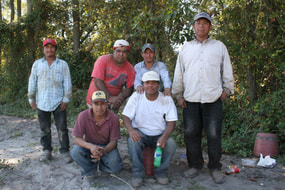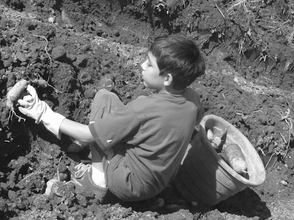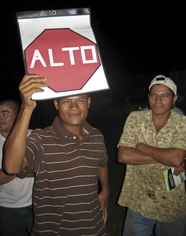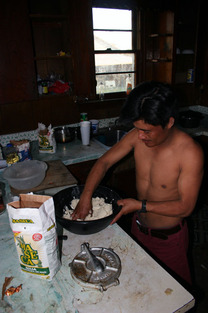|
Facts:
|
Much of this information was derived from resources put together by our friends at the NC Council of Churches. Below is a link to their page, where you can access information sheets and even download them in PDF form.
http://www.ncfarmworkers.org/resources/
A 2010 Human Rights Watch Report on sexual harassment of farmworkers can be found here: http://www.hrw.org/sites/default/files/reports/crd0510_brochure_low_1.pdf
The National Center for Farmworker Health has some great information about child labor in agriculture in the United States here:
http://www.ncfh.org/docs/fs-Child%20Labor.pdf
http://www.ncfarmworkers.org/resources/
A 2010 Human Rights Watch Report on sexual harassment of farmworkers can be found here: http://www.hrw.org/sites/default/files/reports/crd0510_brochure_low_1.pdf
The National Center for Farmworker Health has some great information about child labor in agriculture in the United States here:
http://www.ncfh.org/docs/fs-Child%20Labor.pdf




